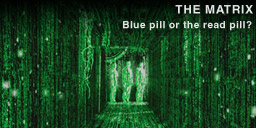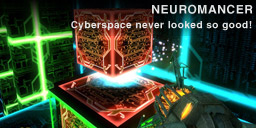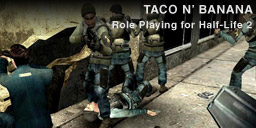
I want to talk about consciousness and gaming. I’ll touch on a number of areas and all of them deserve more depth and detail than I’ve given them. The purpose of this article is to explore some ideas and hopefully be the catalyst for some interesting discussions.
So, let’s get started.
Where are you? Not where are you sitting but where is your consciousness? Is it purely in you brain or is your brain a conduit from which it accesses the physical world?
Perhaps this is a little deep for most readers but it’s a truly fascinating question.
If your brain the location of “you”, what happens if you move your brain outside your body?

I first became interested in this concept when reading The Mind’s I; a book of essays and creations about the nature of the mind and the self, tied together with commentary by the editors. One of the editors, Dennet, wrote a great piece entitled “Where Am I?”, which was followed by Where was I? written by David Hawley Sanford. Both stories explore the idea of removing the brain but still having a connection between it and the original body.
Even though the protagonist’s brain was in a laboratory, it was connected to the body by radio signals. It still felt as if the person was where the body was. Transferring the physical location of the brain seemed unimportant. Yet it is clear that without a brain a person cannot have consciousness. Or can they?
Separating the physical and spiritual has been a topic of discussion for a long time. The basic question, where is the mind?, has been asked by many philosophers including Plato and Aristotle. They questioned whether the brain or other physical organ was the mind or consciousness. This branch of philosophy is called Dualism.

In 1949 Gilbert Ryle wrote a book called The Concept of Mind, in it, he used a phrase; “the dogma of the ghost in the machine” to describe a point he was making about Descartes’ model of Dualism.
Forward to 1967 and Arthur Koestler writes a book called Ghost in the Machine, the title being taken from Ryle. The concept of this book is that the human brain has grown from a more primitive brain. Almost the idea of a brain within a brain. This primitive brain sometimes takes over from the higher brain function and this is the cause of our more base emotions. Whilst this book doesn’t directly relate to the topic under discussion, it is the a good example of the phrase being used outside of Ryle’s book and entering common usage.
Next on out philosophical tour comes Ghost in the Shell, a Japanese Manga series where humans have become part of cyber network. The Ghost refers to their consciousness within the network.
This is the first point that non-biological system have been referenced to the ghost idea.
Of course, since then this concept has been used many times in popular culture and to me the most obvious is The Matrix trilogy. I have no doubt that if you looked you could find a reference to the idea of transferring your consciousness to somewhere else in almost all walks of life.

There have been a number of games that have covered this concept and I am sure there are some Ghost in The Shell game fans reading now, but we don’t have to look outside the Half-Life community to see some interesting examples.
Ghost In The Machine is a recently released HL2: Ep2 mod, where the player interfaces with the Combine network and has to solve a number of puzzles to progress. The implementation is slick and it works very well.
An even more recent release is After-Life 2. This takes a slightly different position, in that the player is already within the machine/game and perhaps never even had a real body as such.
Lastly, for now at least, comes Neuromancer. The title, I believe, comes from a William Gibson novel. In fact, there’s also a video game of the same name: Neuromancer for PC (believe it or not, it’s over 20 years old!).
If I have forgotten other virtual-world mods please let me know.

I’s very interesting that these virtual worlds are all depicted as grids and bright colours. Does it have to be that way? Perhaps it’s the same way the future for people in the 1940’s was always about flying cars.
There must be plenty of other concepts that would work as well. Why not allow the person entering the virtual world to choose its representation? In the same way we choose our desktop theme and colours.
When a child enters this world, it’s all chocolate building and bunnies, but when I enter it’s drab grey concrete and pastel colours in a “Black Mesa” style. What would your visual overlay for our fictitious virtual world be?

I’ll be honest, when I first drafted this article I wasn’t really sure what I was aiming for and William AKA CubicVirtuoso from Podcast 17 proof read the first version he didn’t really know what I was trying to say either (thanks by the way). However, I had an epiphany in the shower a few days ago and realized that what I was trying to do was make a stronger connection with the Half-Life universe and the idea of consciousness outside of our brain..
Assuming that connecting your consciousness to some sort of computer network was possible, what would that world look like? Well, I’ve mentioned possible ideas for that earlier but what would be stopping us from creating a virtual Half-Life world? Valve might still be around then and they could offer a network specifically for that (for a fee, of course)
In fact it’s not that far away in some aspects. Taco N’ Banana is a role playing mod, set in the HL2 universe. They have a number of different servers, each catering for a slightly different environment and situation. I must say I am highly intrigued but simply don’t have the time to join and play.

Strangely, I am currently reading a book called The Prefect by Alastair Reynolds. In it he discusses a future where all sorts of democracy and social systems are possible. Specifically he mentions a system of Voluntary Tyrannies. Citizens voluntarily join the system and have most liberties taken away. He postulates that for some type of people this is the ideal system because they enjoy not having to make decisions etc.
In fact when you think back to The Matrix, the architect specifically mentions the first versions that didn’t work because humans need some sort of conflict (I have paraphrased that because I can’t find the exact quote).
For people to join to join the HL Virtual world and become a citizen or resistance fighter they would need a certain mentality. In fact, I would guess that many people would prefer to join the resistance than the Combine. What does that say about us? Would we rather be the good guys even if it means worse situation than the masters?

Coming back to the central point: the location of your consciousness, I believe that when we play a game or mod we almost transfer our consciousness into a game. Of course, it’s not a permanent or actual connection, but isn’t that what Immersion is all about? Is what we call immersion simply a weak form of consciousness transference?
The step between viewing via a screen and via an implant is just a matter of degree. Control the player via a mouse and keyboard instead of “thinking” those movements and action is not far away.
You only need to follow gaming to see a number of new devices design to make that difference between virtual world and reality smaller and smaller.
Like many, I often become completely immersed when playing games and have fallen sideways out of my chair in an attempt to avoid a rocket.
NOTE: This idea was briefly touched upon in the latest Podcast 17 broadcast (15593), where Robert Yang questioned the word and use of “immersion”.
I personally see a difference between normal games like chess, Peggle, Trackmania and Half-Life. Half-Life to me is an interactive story that I become emotionally involved in.
I believe this is an important difference because who would want to transfer their consciousness into Tetris?
If our consciousness doesn’t actual reside in our brain and it’s just a vessel for interacting with the physical world, can we one day turn that organic conduit into silicon? If we can, would we make that jump?
Clearly answering that question depends on many factors but I believe gamers will be at the forefront of this revolution because we are already leading the way.
For a significant part of my waking life (and some of my dreaming time too) I am located in the HL universe.
Am I just a Ghost in the Game?




















When I was about 8 I was playing Golden Eye for the 64 and my cousins wouldnt shut up, so I tried to shoot them with a silenced pistol.
An interesting article. Personally, it’s impossible for me to get immersed in a game enough that I actually feel like I’m in it (probably due to that fact that there are save-points). However, with movies, I often lose touch with reality (at least momentarily).
In regards to transplanting human consciousness, it should be possible one day to have our minds connected to virtual worlds, since there are already ways (though primitive) to artificially input some stimuli into the mind. To put consciousness into a non-brain form may just be too difficult at the moment though.
“Cogito, Ergo Sum”, “I think, therefore I am”.
But what form thought? Do lower forms of life think? Do they realize they think? And do they recognize their own existence?
[THESE, and other questions, NEXT TIME!! on… “AS THE ZOMBIE TURNS!” ]
Okay… enough silliness. It’s valid, because by questioning our own existence, we validate said existence.
We crave escapism. We seek diversion, even if our lives are as peachy-keen and perfect as possible, we still seek more–see those spoiled rich brats who end up into drugs and lawbreaking, despite having EVERYTHING handed to them on a silver platter. The poor kid at his old P4 that’s barely able to run HL2 at 640×480, as he plays every mod and release over and over again.
Perhaps it’s a matter of perspective.
I work for a major home-improvement big-box store, and lately I think it “(b)Lowe’s” (cough, cough), for many reasons. However, I have to remind myself that, especially now in these troubled economic times, I’m damned lucky to even be working and having an income sufficient to have this speedy Internet connection, the wherewithal to build a rig that makes HL2 run like reality, and the ability to sit here and cogitate upon the consciousness of humankind.
I immerse quite well into games, especially if they are good ones. Suspension of disbelief is important, and if the game is done well, the suspension is easy–just like with movies: if a movie screws up the little details, it makes that suspension impossible, and ruins the experience. And the same applies to a game: if it doesn’t *seem* real, then the nitpicking starts.
Of course, human imagination is key to this: if it weren’t for that, we’d NEVER enjoy games like DOOM or Duke Nukem 3D–anyone remember the flying octopus brains?? The first time I encountered them, that night I dreamt they were coming down out of the ceiling attacking–woke the wife up to get her out of the way!! It’s that sort of imagination that makes things like movies, TV, and games work.
Will we humans ever be able to move our consciousnesses into machines/networks/games/movies/etc?? Not in our lifetimes, I think; and given how things are going for humans right now, I don’t think we’ll get there for a very very long time, if ever. It’s fun to think about; and I think the whole concept comes from our tendency to try to “mystify” our lives and make them “better” than those of the mere animals, and then put some sort of “spirituality” into our lives to assure us that when we die we’ll live on–I’m sure out of sheer fear of our demises.
So, in the meanwhile, we use our quite capable imaginations, and suspend disbelief, and play our games, and delve deep into the mythos created for our enjoyment.
I am wondering – what about a developer.
Take the philosophical position as mentioned as above: “Cogito ergo sum” – another philosopher claimed that we can only really exist, if we are recognized by others as an existing thing.
So, what if a developer produces something. It will most likely be a projection of some sort – a projection of his inner world (or whatever you’d like to call it – consciousness? – I dunno). And even though it might not be too obvious (and most likely not to himself) there is some auto-biographical aspect in that piece of work.
So in some sense, that guy is in the product – he made it, and ideally he made his product in a way, in which the system of the game is able to respond in a similar way as he would himself.
Now – if someone’d go and play that game, what they’d do at the same time is actively put input into the system, taken into account that there is a system (so accepting that a system exists), which ultimately provides the acceptance of the existence of the developer in the first place?
Might be a bit, well, mindfuck? Dunno
Just some thoughts on this,
– electro
One of my favourite discussion!
What am I? Am I my body with my organs? Are all my thoughts just organic material set together to an intelligent working system?
I shortly read the great cyberpunk book Altered Carbon by Richard Morgan, and I heavily recommend it to you if you are interested in future theories and possibilities.
I’ll give you a short overview:
In the future, people minds are saved in small boxes inside their head, so called stacks, when they die, their mind is still alive in their stack. Then you can simply transfer your stack in a clone of yourself or any other clone, so called sleeves. With this method you can live theoretically forever. Very interesting is that the main character of the book dies at the beginning and gets resleeved in a new body, which does look different to his old. Sometimes he gets sick of seeing himself in the mirror and gets paranoia, there’s e.g. a great scene where his mind talks with his body.
Ghost in the shell questions more if you are still human if you change “nearly” all your organic material against a full body cyborg.
Hey, Phillip, if you join Taco n” Banana, warn me, cause I play there too.
God damn philosophy. My stupid teacher gave me D+ in it this year…
But Matrix is awesome. You hopefully understand I only mean the first part! 😀
Nice angle, Philip. Existential philosophy x HL = ?
Before we transfer our consciousness into the next CPU, we have to ask what we are really transferring.
Consciousness is “only” a complex mix of real and virtual thoughts – basically, billions of neurons firing in a controlled way. With enough memory and processing power, we will get that into a machine one day.
But would it then have consciousness? I don’t think so, because it won’t have the evolutionary stresses that we have and these are key to how we use those neurons…unless someone adds those evolutionary stresses to the software.
I cannot imagine how to do this, but the software would need to engender an instruction to execute a choice based on the CPU’s own decision – and “digi-self” is born (see, HAL9000 in 2001).
So the CPU ends up being like one of us, but with no body. And I meet these guys every day on DM and CTF; no visible body but a representation of their intelligence in cyberspace (and I use the term intelligence loosely).
I’ve read this post several times and find it verging on the religious. I stand by the tenet ” discussing politics and religion with friends should be avoided” else you might make enemies. I’ll desist then.
However, I might understand what you are getting at in an overall sense because it is inconceivable that when you die your conciousness (soul?) dies with you.
On a practical note: Gaming, HL or otherwise, is sheer escapism becasuse you become part of the game and the real world spins without you; I see nothing deeper than that.
On a jocular note: From your post “what happens if you move your brain outside your body” answer – you cease to feel very well! – or feel at all actually.
Pingback: C:15761 » Podcast 17
OK I’ve always seen the human mind in itself as being a machine. The brain to me always seemed to have many vital parts to us running properly. What your asking seems to be more asking if our brain is more of a port where the things that make us who we are (I guess what one usually calls a soul) connect and allow us to “be here.” In all honesty I have no clue, and by the time any answer is truly found, I figure we will be dust. Well based upon the topic our bodies will be at least. Also if you have any issues with my answer sorry I’m just a 15 year old kid who’s pretty fricken clueless 😛
Yes , this is all very interesting.
I’ve got loads and loads of books about consciousness and what “i/I” means.
The best one I’ve read is of Douglas Hofstadter: I am a strang loop. Goes very deep into this matter, he even drags video-feedback into the play.
Nice SITE btw, just discovered it.